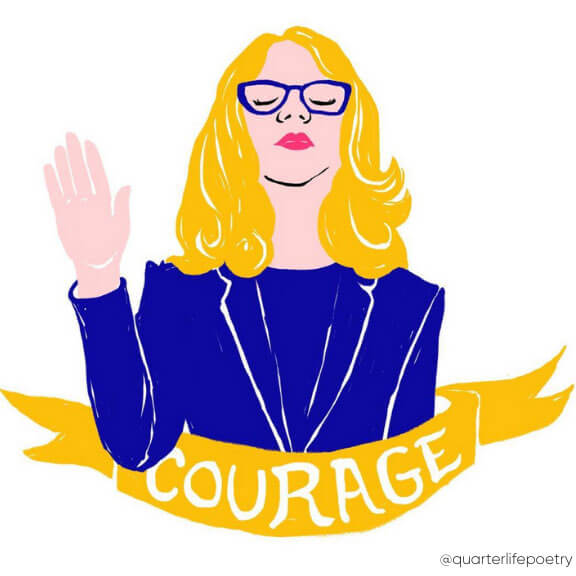
I watched with awe and appreciation Dr. Christine Blasey Ford’s testimony and the immense courage it took to share her painful history and trauma. I was floored by her commitment to her “civic duty” (her words). Let this just sink in for a moment: as an act of patriotism she bared her soul in front of the world for her country, knowing that without her story on the record, Congress’ decision in its selection of a lifetime appointment to the Supreme Court would not be fully informed. I also watched with deep sadness and horror as her brave truth-sharing was dismissed and undermined by fellow citizens, media commentators, and members of Congress. On display: an epidemic inability to hear and stay open to pain and consider the possibility that the story shared was for the common benefit, not partisan point-scoring.
I am reminded of similar acts of courage playing out on a much smaller scale in our meditation communities across the country. Meditation practitioners are standing up and speaking out about how the communities themselves have been formed that make them emotionally or psychologically unsafe. They are pointing out the ways the teachings are presented that prevent them from being universally accessible. As scary or daunting or even re-traumatizing as it is for them to share their truth, these courageous community members are speaking out with the intention to create more authentic, heartfelt spaces of shared practice and learning.
But unlike what’s happening on the national stage, those of us who meditate together learn how to turn towards our painful stories, stay steady and open to them. We have tools to help us when the going gets tough. When resistance inevitably comes up, we notice, ground, take a few breaths, and listen when someone says, “This is how it is for me.” It’s difficult to stay open to pain, especially when we may have wittingly or unwittingly played a part in it. With our commitment to loving awareness, these stories of suffering can be a gift – a wake up call, a precious opportunity to put our practices of mindfulness and compassion in action. We can explore ways of creating “a more perfect union” of practice and community (I am very much looking forward to David Treleaven’s upcoming teachings on trauma-sensitive mindfulness).
This work is not easy. To me, it is our “patriotic” duty towards our meditation communities to stay with it. We can be inspired by the courage of those of us who are willing to share their pain so that we can be better together. We can re-commit to opening our hearts. We can re-commit to turning tenderly towards suffering and using it as the path to transformation. We are not in a hurry. We are here to listen to each other. We are here to be kind – to ourselves and others – and to learn the truth of what is. We are here to awaken together. This is why we practice. This is what we are here to do.
Love,
InsightLA Teacher
